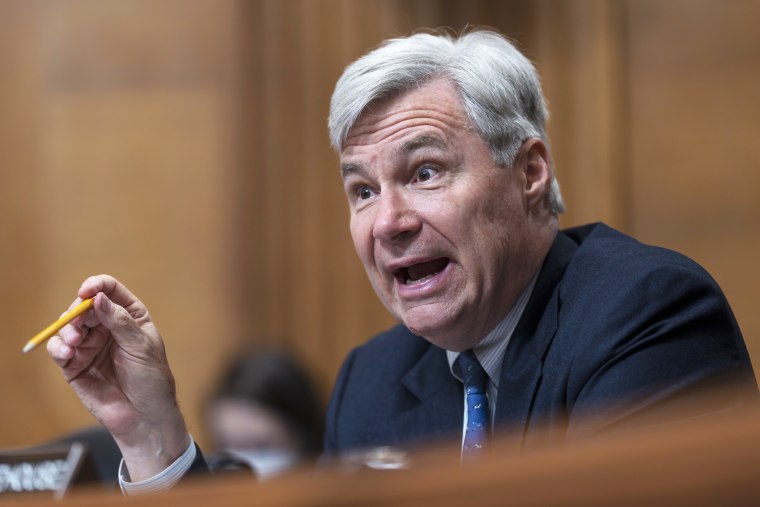Recent reports about luxury gifts, travel and tuition for a minor under his care that Supreme Court Justice Clarence Thomas received but did not disclose have left some lawmakers to consider steps to increase ethics requirements to restore trust in the Supreme Court.
Sen. Sheldon Whitehouse, D-R.I., the chair of the Judiciary subcommittee on federal courts, said Sunday on NBC's "Meet the Press": "The work that we're doing on ethics in the court ought to be easy. And yet it's not. It's partisan, also."
To address that, Whitehouse said, it is first and foremost up to the justices themselves to start the reform process.
"The first step is going to be for the Judicial Conference, the other judges, to put some constraints around the Supreme Court's behavior and treat the Supreme Court the way all other federal judges are treated. And that happens inside the judiciary," Whitehouse said.
The Judicial Conference of the United States, made up of senior federal judges led by the chief justice of the U.S., is the primary policymaking body for the federal court system.
Polling indicates that Americans are losing confidence in the court, with Democrats souring on it more than Republicans.
A Marquette University Law School poll released this month found that 59% of Americans do not approve of the job the Supreme Court is doing.
Among Republicans, 60% approved of the job the court is doing, and 40% disapproved. Among Democrats, just 24% approved of the court, and 76% disapproved.
Other recent surveys, including AP-NORC’s poll series spanning decades, have found public confidence in the Supreme Court hitting all-time lows.
Whitehouse said that, if necessary, Congress could step in to pass its own laws regulating the court.
"I'll be the first one to concede: If there's a case in the judicial branch of government, we in the Congress have nothing to say about it," Whitehouse said.
"But in terms of administering how the internal ethics of the judicial branch are done, heck, the Judicial Conference, which does that, is a creation of Congress," he added.
Former Sen. Roy Blunt, R-Mo., disagreed, saying on "Meet the Press" that the Supreme Court is different by its nature as a body established by the Constitution.
"Every one of the other courts was created by Congress," Blunt said. "Only one court is created by the Constitution, and that's the Supreme Court of the United States.
"The relationship in those other courts is different than the relationship with the Supreme Court. And the chief justice and the justices have to make, in my view, this particular decision about conduct and rules," he added.
Blunt and Whitehouse put the furor over the Supreme Court in the context of the increasingly bitter partisan fighting over the makeup of the judiciary in recent decades.
"It would be better for the country if the Supreme Court and the nominations process had not been so heavily politicized and we were operating under what more looks like a regular order," Whitehouse said about the Senate's role in confirming federal judges and Supreme Court justices.
Still, he backed then-Senate Democratic leader Harry Reid's decision to end the use of the filibuster for federal district and appeals court nominees, which meant the minority party could not block judges from coming up for simple majority votes.
"We saw back then that there was no amount of persuasion that could convince Republicans to vote for D.C. Circuit Democratic nominees. And that’s why Harry had to do what he had to do," Whitehouse said.
Blunt also lamented the lowering of confidence in the court, though he backed then-Senate Republican leader Mitch McConnell's decision not to allow hearings on Merrick Garland's nomination to the court in the final year of the Obama administration.
Blunt blamed the Supreme Court's declining ratings on larger societal problems, rather than partisanship.
"There's another thing going on in the way we deal with each other as a society. It's easy to tear, friends, people down on social media and other places," he said.
Blunt added: "We've done that to the Congress. We've done that to the president. I hope we can figure out how to avoid taking this court that we all should have confidence in" down that road.

